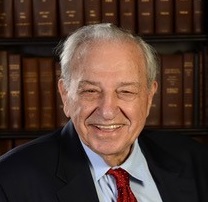Rudolph Marcus is a theoretical chemist who studied electron transfer in redox (reduction and oxidation) reactions. Rudolph established what is now known as the Marcus theory to explain electron transfer reactions. Rudolph was awarded the 1992 Nobel Prize in Chemistry for this important research.
Electron transfer reactions describe the rate at which an electron can jump from one chemical species to another. Rudolph's work showed how molecular changes in reactants and solvent molecules influence this intermolecular movement of electrons. Marcus theory is able to describe important chemical and biological processes, including photosynthesis, corrosion, types of chemiluminescence — the emission of light resulting from a chemical reaction — and charge separation in some types of solar cell.
The interaction between experiment and theory, each stimulating the other, remains one of the joys of Rudolph's scientific experience. He draws upon the experimental findings or puzzles of others to uncover theoretical problems to study whilst his own practical research has flavoured his attitude towards and interest in theoretical research.
Awards
Nobel Prize in Chemistry
For his contributions to the theory of electron transfer reactions in chemical systems.
Wolf Prize
In the field of chemistry for his contributions to chemical kinetics, especially the theories of unimolecular reactions and electron transfer reactions.

